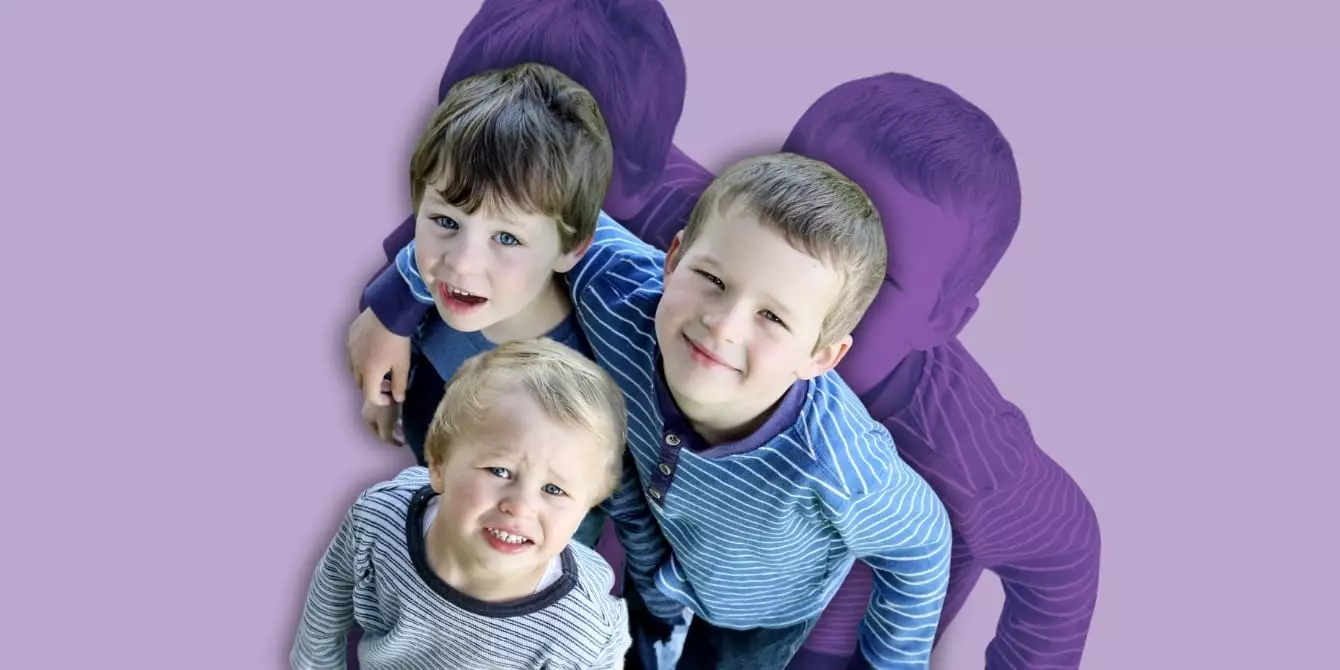The family unit plays a pivotal role in shaping an individual’s personality. A relatively recent study published in the Proceedings of the National Academy of Sciences (PNAS) in December 2024 has shed light on how birth order and the size of a family can influence personality traits. Conducted by researchers Michael C. Ashton and Kibeom Lee, the study drew upon the responses of over 700,000 participants, revealing fascinating insights into the ways in which the position within the family—whether being the firstborn, middle child, youngest, or an only child—can affect core personality attributes.
One of the striking conclusions of the study is the distinctiveness of middle children, who consistently emerged as more cooperative and kind compared to their siblings. This finding suggests that middle children often act as mediators and peacemakers within the family structure. Thus, their position may encourage skills such as compromise and negotiation, with interpersonal dynamics prompting them to engage in behaviors that emphasize harmony and collaboration.
The research goes further by exploring how the number of siblings—termed sibship size—affects personality traits like kindness and humility. Participants from larger families, particularly those with six or more children, displayed higher scores in terms of these traits compared to those from smaller families or single-child households. This indicates that growing up in a bustling environment could provide more opportunities for children to develop empathetic behaviors through shared experiences and challenges faced within the family unit.
Conversely, only children and firstborns showed a slight edge in traits associated with openness to new experiences. This includes traits like intellectual curiosity and creativity. Such findings suggest that the responsibility and pressures often placed on firstborns to set a precedent might foster a sense of adventure and a willingness to seek new opportunities, setting them apart in certain aspects of personality development.
The researchers identified shared experiences within families—be it through family traditions, religious practices, or communal gatherings—as crucial elements that cultivate cooperative traits among siblings. The study highlighted that environments prioritizing mutual support, particularly those reinforced by shared values like selflessness and kindness, can significantly contribute to the development of empathy and cooperation within sibling relationships.
This insight positions larger families as potential hotbeds of cooperative traits. As siblings navigate the complexities of familial interactions, they acquire the skills necessary for compassion and teamwork—valuable attributes that can translate into social and professional success later in life.
Employing the HEXACO model, which measures six distinct dimensions of personality—including traits such as emotionality and sociability—provided a more nuanced and comprehensive understanding of personality development compared to prior studies that often relied on less detailed frameworks. This innovative approach highlights the varying influences of birth order within the same family size, revealing that firstborns, while exhibiting higher openness, may be at a disadvantage when it comes to kindness and humility compared to their younger siblings.
Such revelations necessitate a re-evaluation of the traditional stereotypes associated with birth order. While firstborns may be lauded as responsible and assertive, this study prompts a more balanced perspective, recognizing that each sibling position offers unique contributions to personality development.
The findings from this extensive research underline the significance of family dynamics in shaping individual personalities. Parents are encouraged to create environments that foster cooperation, support, and kindness, irrespective of the size of the family. By nurturing the development of these values, parents can help instill lasting characteristics of empathy and compassion throughout their children’s lives—key traits that contribute to personal and social fulfillment.
This study enriches our understanding of how interpersonal relationships within families influence personality development. It serves as a reminder that every family has a unique dynamic, and the warmth, support, and values instilled within those connections are crucial in guiding children toward becoming their best selves. Whether children are the firstborn, middle child, youngest, or only child, fostering an environment of kindness and cooperation can yield profound benefits, setting the foundation for a resilient and empathetic future.

